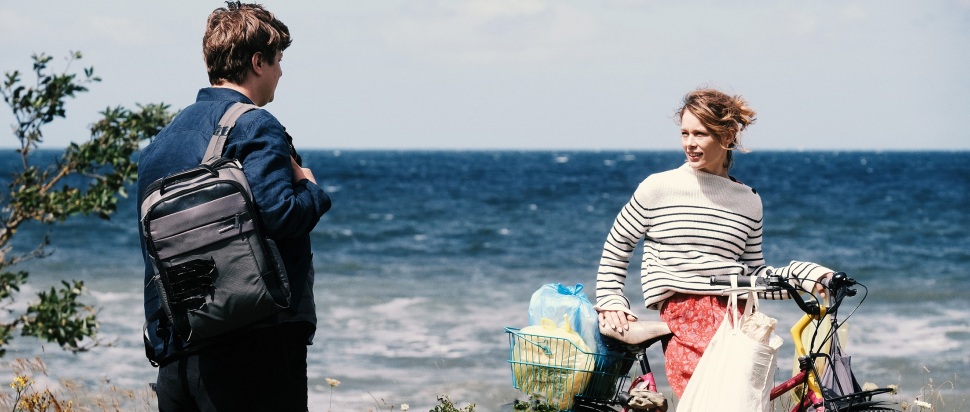Afire
A writer struggles with creativity and interpersonal anxieties while on a trip to a seaside cottage in Christian Petzold's sharp and funny character study
“It’s misfiring” are the first words we hear in Afire. Something isn’t quite right and so the car has stopped; it has missed, only just. It’s something of a prognosis for the characters of Christian Petzold’s latest, gorgeous film.
Writer Leon (Thomas Schubert) joins his friend Felix (Langston Uibel), who's a photographer, on a trip to Felix's parents' holiday home by the Baltic Sea. Leon’s idealised quiet is halted by the presence of surprise co-guest Nadja (Paula Beer) and her companion David (Enno Trebbs). As the four intertwine, navigating their mutual yet conflicting desires, forest fires arrest their surroundings. Afire is not a romance; rather it is concerned with desire in emergency – that is, desire at the time of a crisis and desire as crisis.
The protagonist, Leon, is overly concerned with his creative work, with this focus lending to a shortsighted view of everyone and everything else around him. He is a type, here burned anew for the ecological demise that defines our times. Afire’s interrogation of such a type in the present tense is truly a feat.
Leon is always watching, always somewhat detached from the main event. “My work won’t allow it,” he says, choosing pretence over joy and desire. But he’s aware of his aloofness, admonishing himself when he has said the wrong thing yet again. Schubert carries such discrepancies with ease, all frustrated emphases and tense, heavy posture. And yet, there is room for sympathy. Leon’s turmoil is not a peculiar, unidentifiable thing. And this somehow makes him and all his apprehensions bearable.
Such apprehensions are noted by Nadja, a character who unfolds at her own pace. The film is very much told from Leon's point of view, but at times Nadja's perspective would have offered Afire a further depth that wouldn’t have gone amiss; certainly, Beer’s seemingly effortless footing within each scene begs for it.
And naturally, Uibel carries Felix with real warmth and charm, even when condemning or criticising Leon. Their relationship is perhaps Afire’s most noteworthy. Care exists even in conflict and it’s something that both Uibel and Petzold seem acutely aware of. Meanwhile, the introduction of Leon’s publisher (Matthias Brandt) midway offers another lens upon the narrative; we are reminded of the foursome’s youth and uncertainty, in stark comparison with the publisher’s assured, mature approach.
Comedy is used sparingly and it works. With Leon, life is serious and proper and there’s little humour to it. The few moments of comedic respite are easy and laid back, primarily a necessary opportunity to have a laugh at Leon’s solemnity. Music is minimal too, with only one song on the soundtrack, which bookmarks each end of the film. Instead, banal, everyday sounds take precedence: a returning fly, the packing and unpacking of bags, washing dishes, an aeroplane or helicopter that is never seen. The characters’ reality continues loudly as it is simultaneously displaced.
Petzold has constructed a thoughtful, slow-burn watch that asks urgent questions amid a tight, personable narrative. It certainly does not misfire.
Released 25 Aug by Curzon; certificate 15
Screened as part of Edinburgh International Film Festival at Vue Omni Centre, 22-23 Aug
